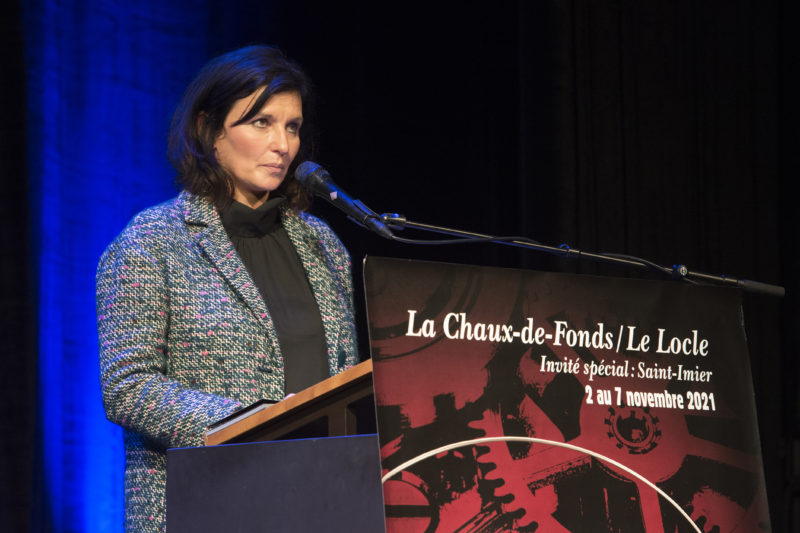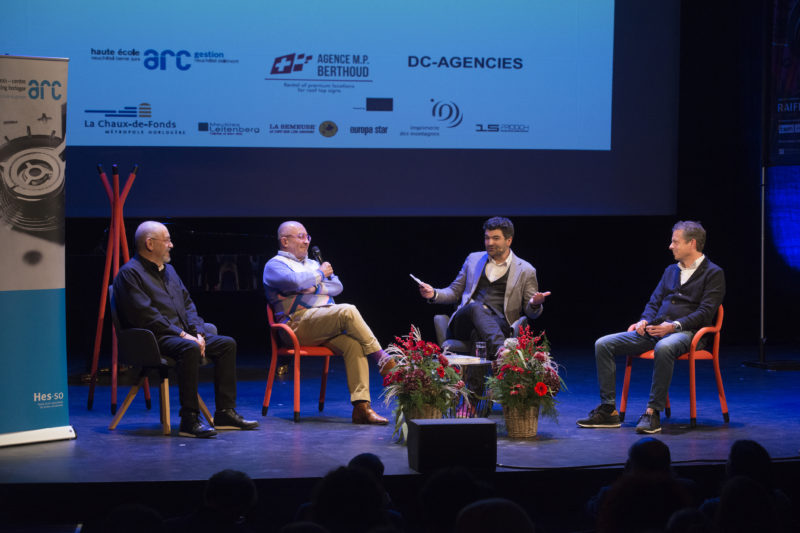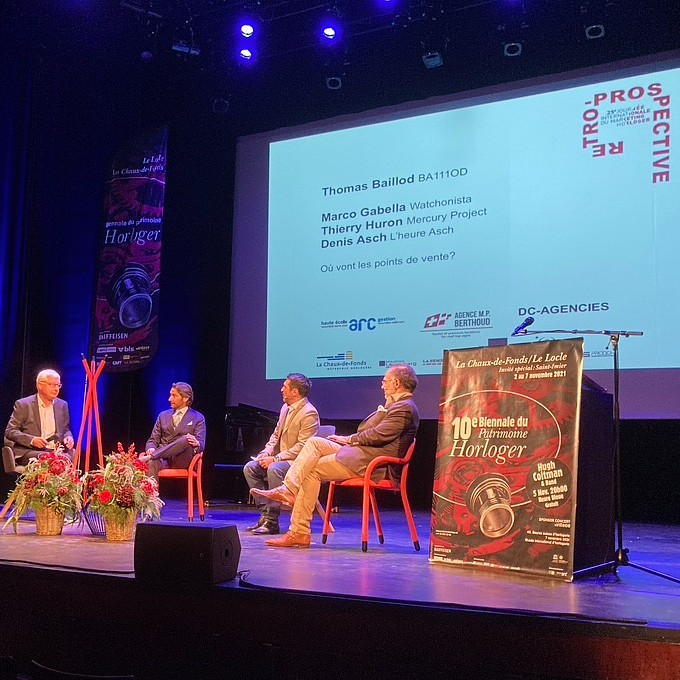Laetitia Vifian Benoit is the president of the International Watch Marketing Day (Journée du Marketing Horloger, JIMH) – a marketing forum held in Switzerland since 1996. Its 26th edition, entitled "The Eternity of the Watch," will take place in Neuchâtel on November 17, 2022. Fine Art Shippers spoke with Laetitia Vifian Benoit about the upcoming event’s agenda and today’s challenges of the watch industry.
The Eternity of the Watch: Interview with the President of the International Watch Marketing Day
Please tell us briefly about the history of International Watch Marketing Day and its mission. How and why was it created and what was its initial goal?
Laetitia Vifian Benoit: International Watch Marketing Day was founded 26 years ago. The idea was to create a certain level of quality for the marketing of watches. There were forums such as the Basel Fair and the Geneva Fair, which were very big and sales-oriented. However, what the watch industry needed was a place where professionals and academics could meet and think together about how to take marketing in the watch industry to the next level.
Many years later, a lot has changed, but we are still on the same path. Everything that happens at the JIMH creates new solutions and approaches. We are constantly looking for better ways to produce and market watches. The dialogue we foster helps watchmakers and marketers find innovative solutions to today's challenges.

This year's edition is entitled "The Eternity of the Watch." Could you elaborate on the idea behind this theme? How did you come up with the theme?
The watch industry is currently facing a lot of difficulties, and the smartwatch is one of the biggest challenges. The emergence of this new player has created a major crisis for the watch industry. Traditional watches are the opposite of smartwatches, because they are, in a way, made to last forever, as most of them are mechanical and do not use batteries. Behind this is a philosophical concept of eternity – the difference between long and short time. This is one of the aspects we will discuss at JIMH in November.
Another topic we would like to address is ecology. The way watches are manufactured is still a big problem. We need to make production clean in the first place. Our idea is to get people talking and motivate watch industry leaders to think about new ways of manufacturing. We have chosen speakers from different fields to show the audience what can be changed.
Can you tell us about the production of mechanical watches – how can it be improved to be more sustainable?
First of all, it is necessary to use pure raw materials, which are at the very beginning of the manufacturing chain. At the forum, we will talk about ethical standards in the production of gold and gemstones. There are ways to do this more sustainably. Packaging and shipping are also a challenge – manufacturers do need to think about the carbon footprint they leave behind. There are a lot of aspects we need to consider and a lot of things we have to change. It will probably take a generation to get this done, but at the very least, we need to initiate and drive these changes.
What challenges is the watch industry facing today besides the advent of smartwatches?
First and foremost, it's the distribution channels. In addition to the traditionally fierce competition between retail chains and corporate boutiques, there are several issues that the covid pandemic has brought. We were confronted with the need to sell watches directly to customers online. Most watchmakers were able to make this transition, but a big question is how to develop this smoothly without disrupting existing distribution channels.

How would you describe today's watch buyer?
I would say, it is mainly the 50+ generation. People in their 30s and 35s do not often buy expensive watches. However, the covid has changed things a lot. The lockdowns of the last two years, the need to spend more time at home, and the lack of interpersonal communication have changed how people buy luxury accessories. These have become less of a status thing and more of a way to create your own safe space which makes you feel good.
The International Watch Marketing Day has an intense agenda but it happens only once a year. What other channels for sharing knowledge and ideas do you have?
We have a publishing program which we have been running for 14 years now. For each International Watch Marketing Day, we publish a book that addresses the most current issues in the industry and includes articles by industry leaders and academics. This year, the book will also be available during and after the forum.
Photo courtesy of the International Watch Marketing Day